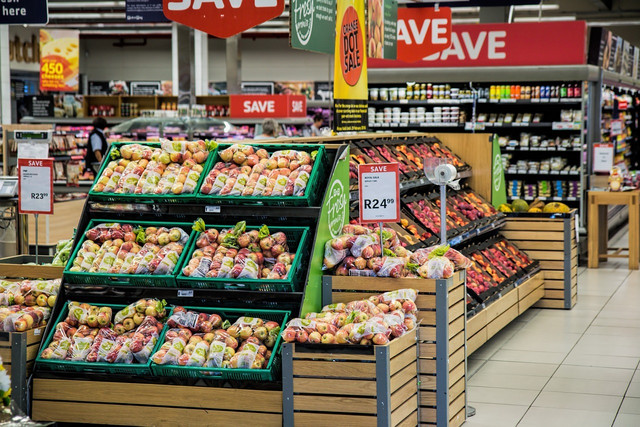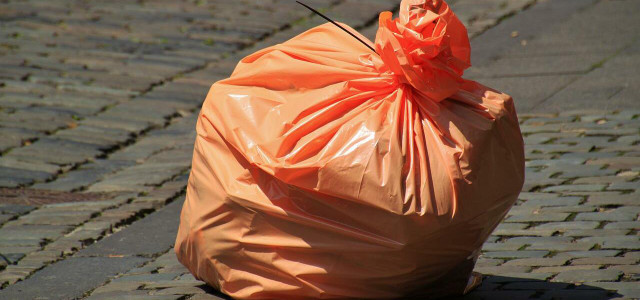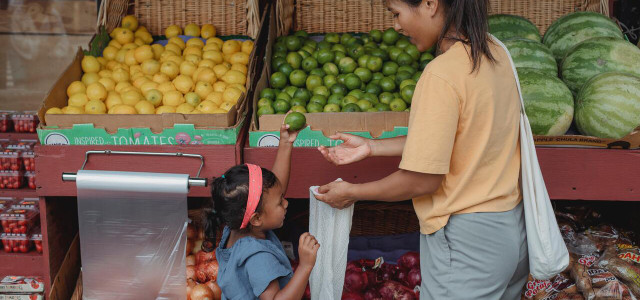Should plastic bags be banned? Plastic is a major cause of pollution worldwide. We'll discuss why a growing number of people want to ban plastic bags entirely.
Plastic bags were created as an eco-friendly, sustainable alternative to paper bags. Swedish engineer Sten Gustaf Thulin invented the plastic bag in 1965 while working for packing company Celloplast, which still holds the original patent.
In 1982, major grocery store chains like Kroger and Safeway in the US began replacing paper bags with plastic bags, and by the end of 1985, some 75 percent of supermarkets offered their customers the new option. Plastic bags were actually considered better for the environment than paper bags, which people increasingly viewed as to blame for trees being cut down and deforestation.
Plastic bags are a staple part of modern-day shopping; however, as environmental concern grows over the use of plastic, many people are going plastic-free and switching to reusable bags. Other, more environmentally friendly alternatives to plastic bags include reusable cotton tote bags and recycled foldable shopping bags.
Should Plastic Bags Be Banned or Not?



(Foto: CC0 / Pixabay / 12019)
There are many reasons why plastic bags are damaging to the environment. Some of these reasons include:
- Plastic bags require fossil fuels. Americans use roughly 100 billion plastic bags a year. These bags take 12 million barrels of oil to manufacture. Oil is a non-renewable source of energy and contributes substantially to climate change.
- They end up in landfills. The inventor of the plastic bag, Sten Gustaf Thulin, intended for people to reuse plastic bags, but this vision has been far from reality. Most shoppers use plastic bags just once. In 2015, for example, about 730,000 tons of plastic bags were produced in the US, and more than 87 percent of those bags were never recycled, instead ending up in landfills and the ocean. As well as ending up in landfills, plastic bags are littered in streets, get stuck in trees and block storm drains.
- They harm marine life. Plastic bags contribute to plastic pollution in the ocean as they are non-biodegradable. The WWF estimates that 100 million marine animals are killed each year due to plastic pollution. However, paper and reusable tote bags are biodegradable and will decompose — so they don’t pollute the ocean the way plastic bags do.
- The production of plastic bags requires a lot of energy. The energy needed to drive a car for one kilometer is equivalent to that required to produce nine plastic bags.
Also intersting: Why You Can’t Recycle Plastic Bags Curbside
However, some people assert that plastic bags should not be banned. They make several arguments, such as:
- Plastic bags are not the largest source of pollution. Transportation is actually the biggest culprit when it comes to pollution. That leads some to argue that plastic bags should not be banned because there are better ways to reduce our carbon footprint, such as reducing the number of cars or how much people drive.
- People can still harm the environment in other ways. Another opinion is that shoppers who feel good about avoiding plastic bags may do more harm to the environment in other ways. For example, they might reward themselves by buying extra meat, which supports problematic factory farming practices and contributes to deforestation, greenhouse gas emissions, and water pollution.
- Production of plastic bag alternatives also requires a lot of resources. Paper bags and tote bags need substantial resources to create. Cotton bags, in particular, can have major environmental consequences. According to the WWF, cotton accounts for 24 percent of the global market for insecticides and 11 percent for pesticides, despite the fact that only 2.4 percent of the world’s cropland is planted with cotton. Tote bags are also linked to overproduction, as demand has increased substantially over recent years.
Hint: To get the biggest environmental benefit from your tote bags, own a small number and reuse them often.
Plastic Bag Bans Around the World



(Foto: CC0 / Pixabay / stevepb)
Some countries have already banned plastic bags altogether. For example, Kenya implemented a strict bag ban on plastic bags in 2017 to combat flooding caused by bags clogging storm drains. Shopping in Kenya requires you to take your own bag or receive your groceries in a paper version.
Thailand and Rwanda have also taken strict stands against plastic bags. In January 2020, Thailand enforced a ban on selling plastic bags in all major stores and supermarkets. Thai shoppers find innovative ways to carry their shopping, even using wheelbarrows or hampers. Meanwhile, Rwanda banned plastic bags back in 2008, and you face fines of up to 60$ if caught with one. Businesses use paper bags instead.
America has yet to follow these countries in enacting a nationwide ban on plastic bags. That’s a problem, as the average American uses around 365 plastic bags per year. In comparison, people in Denmark use an average of four. As of 2022, eight states have banned single-use plastic bags: California, Connecticut, Delaware, Hawaii, Maine, New York, Oregon and Vermont. In these states, people use paper or reusable bags.
Read on:
- Cigarette Butts are The World’s Most Littered Plastic Item. Are They Biodegradable?
- Life Without Plastic: Easy Tips for Everyone
- Zero Waste Travel: Green Living On The Road
Do you like this post?








